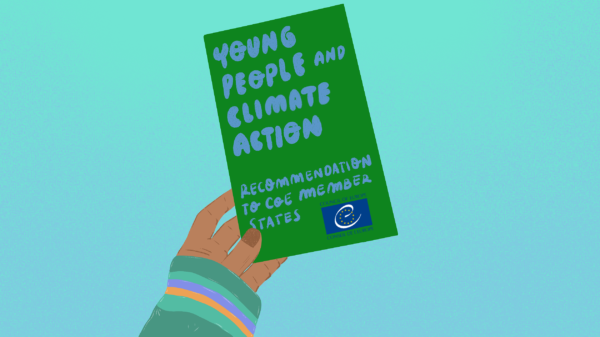Council of Europe Adopts First International Guidance on Youth and Climate Action
Reading time : 2 minutes
October 2024 marked a notable development in international climate governance and youth engagement, as the Council of Europe adopted the first soft law instrument specifically focused on young people and climate action. The Committee of Ministers’ Recommendation CM/Rec(2024)6 represents a new step in recognizing and supporting the role of youth in addressing climate-related challenges.
This Recommendation follows two years of collaborative drafting and builds on sustained efforts to prioritize climate issues within the Council of Europe’s agenda. It sets out a series of non-binding yet influential guidelines aimed at supporting Member States in strengthening youth engagement in climate policy and practice.
The text encourages Member States to take steps that enable young people to participate meaningfully in climate-related decision-making processes. It also highlights the importance of ensuring access to education, climate information, and youth-friendly health services. Additionally, it draws attention to the specific challenges faced by young environmental defenders, including discrimination, limited participation channels, and lack of institutional support.
Importantly, the Recommendation emphasizes the need to tailor measures to the diverse realities of young people, with particular consideration for those from marginalized or underrepresented backgrounds. It further invites national, local, and regional authorities to disseminate and implement its guidance, ensuring that the proposed measures reach all levels of governance.
This development was made possible thanks to the sustained work of youth-focused organizations such as Youth and Environment Europe (YEE), who have long advocated for stronger recognition of youth as key stakeholders in climate action. Their efforts have helped ensure that youth voices are not only heard but also considered in the formulation of future climate policy.
While the Recommendation is not legally binding, it carries significant normative weight within the Council of Europe’s framework. It provides a reference point for governments and civil society actors to strengthen youth participation and protect the rights of young people engaged in environmental advocacy. As climate challenges intensify, the adoption of such instruments underscores the importance of inclusive and rights-based approaches to environmental governance.
